Liberal premiers from SA, NSW and Tasmania push Scott Morrison to cut fuel excise
Surging petrol prices and threats of higher interest rates have sparked demands from the Liberal premiers to cut fuel excise to address cost of living pressures.
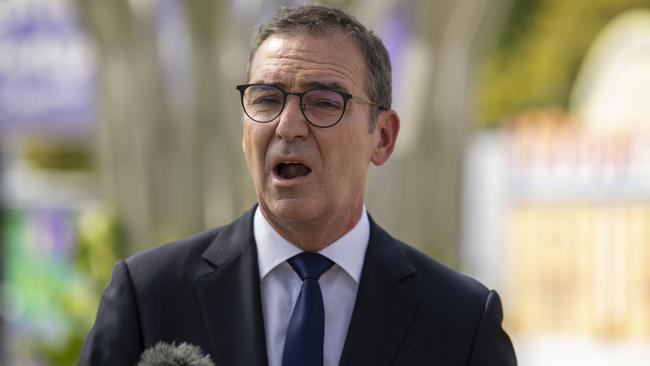
Surging petrol prices and threats of higher interest rates have sparked demands from Liberal premiers to cut fuel excise to address cost-of-living pressures ahead of key elections.
Scott Morrison has refused to rule out some cost-of-living support as petrol prices soared above $2.20 a litre in some cities and South Australian Premier Steven Marshall made an election-eve appeal to Canberra to act on excise as he fights to stave off defeat in Saturday’s poll.
NSW Premier Dominic Perrottet on Sunday strongly supported cuts to the $50bn fuel tax, as did Tasmanian Premier Peter Gutwein, who has written to the Prime Minister demanding action.
Mr Marshall wrote to Josh Frydenberg at the weekend urging him to temporarily cut the excise, which runs at 44.2c a litre, and on Sunday declared he also was worried about the effect of possible interest rate rises this year.
The commonwealth is believed to be examining the request from SA and is sympathetic to the call for some form of cost-of-living relief, given the hip-pocket pain caused by soaring fuel prices, tepid wage increases, high house prices and forecast produce shortages after floods in NSW and Queensland.
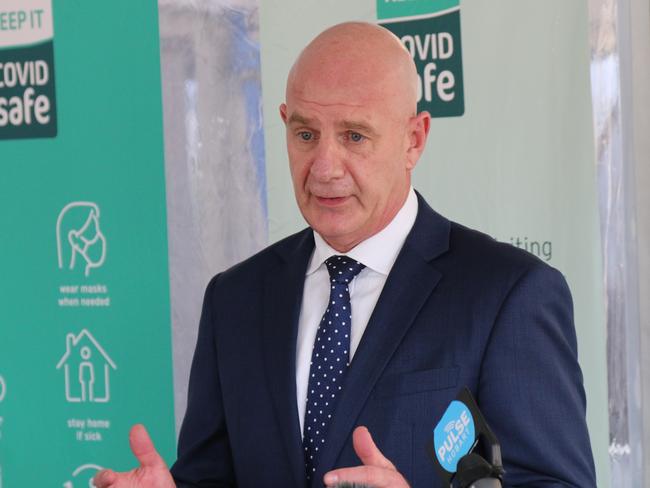
Mr Perrottet said people were being penalised across NSW because of the rising bowser prices, which have been exacerbated by the Ukraine conflict.
“I would welcome any move by the commonwealth government to reduce excise which reduces the costs to families at this difficult time,” Mr Perrottet said. “States and the commonwealth have an important role in putting downward pressure on family budgets across the country.”
Former Liberal prime minister John Howard, who is to campaign in Adelaide ahead of the weekend’s state election, cut the excise by 1.5c a litre in 2001, helping the Coalition win its third consecutive election.
With Australians paying about $150 to fill up an average petrol car, Mr Morrison on Sunday left the door open for a cut, but argued it had would have little impact on price fluctuations.
“The budget’s at the end of this month. But my point is that excise, where it has sat, is not going to change what the fluctuations are in price. That is going to mean many times over any change you made in excise,” Mr Morrison said.
“I think Australians know that what’s happening with petrol prices at the moment is being caused by what’s happening with the war in Europe. We’re working with other countries … in terms of releasing fuel reserves to try and alleviate pressure on fuel prices.’’
The Australian understands senior government figures have discussed the impact of higher global oil prices and supply chain pressures ahead of the March 29 budget, with expectations prices will continue increasing in coming months, perhaps as high as $2.50 a litre. Consumers across Australia have been hit with inflated prices as businesses have tried to function after two years of Covid-induced mayhem.
Cost of living is seen as one of the central reasons for the unpopularity of the Marshall government, which is fighting for its life this week after just four years in power.
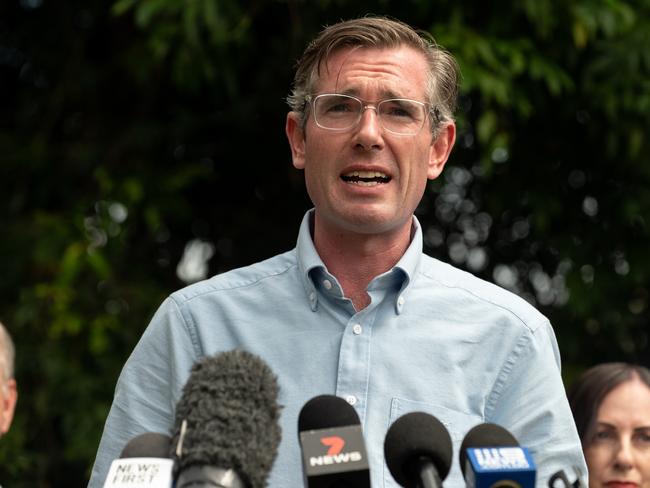
Mr Marshall said on Sunday the twin concerns of fuel price rises and looming interest rate rises were playing on people’s minds, adding they were “really feeling it in the hip pocket”.
Of the requested excise cut, he said: “It doesn’t need to be permanent. But while we are in this elevated fuel price situation, we would really like to see some relief come from the federal government.”
SA Labor leader Peter Malinauskas on Sunday announced 185,000 concession card carriers would receive up to $434 in the next financial year – a 100 per cent rise – to help cover the fuel increases.
The Australian Automobile Association estimates the “typical household“ pays $1188 in excise each year.
AAA managing director Michael Bradley said the economic argument for cutting fuel excise was weak and would rob the country of crucial infrastructure. “We think the government should hold the line on fuel excise,” he said.
“It’s a short-term sugar hit for long-term economic pain.”
Mr Gutwein also wrote to Mr Morrison arguing for a cut to fuel excise, arguing his state was among the worst hit. “Higher fuel prices are having real impacts on businesses and consumers, and this is particularly the case in Tasmania,” he wrote.
“As a small, regional island economy, Tasmania faces challenges in having comparable petrol prices to mainland capital cities, including extra transportation costs across Bass Strait, the level of competition in wholesale and retail markets, and our market size. In these circumstances, I am writing to request your consideration of interim measures to reduce the price of fuel … including a temporary reduction in the … fuel excise.”
Given that fuel excise has been baked into long-term infrastructure spending, the Treasurer is understood to have been reluctant to cut or freeze the tax because of its impact on the government’s $110bn infrastructure pipeline.
Mr Frydenberg last week said money raised via fuel excise “goes back into regional roads, into major urban transport projects” and his cost-of-living focus was on childcare and other day-to-day costs. An internal push to introduce road-user charges on electric vehicles is unlikely to feature in the budget.
Assistant Treasurer Michael Sukkar on Sunday said “the pressures of cost of living” would be a key feature of the budget amid concerns of even higher fuel prices and interest rate hikes increasing mortgage repayments. “There is no doubt the budget will seek to build the recovery, ensure we keep our foot on the economic accelerator, but also we’ll take into account the fact that households are feeling the pressures of cost of living,” he said.
“In a world of great economic and political instability, yes we have an economic recovery under way but it can’t be taken for granted and there will undoubtedly be speed bumps into the future.”
Anthony Albanese last week deflected questions on whether a Labor government would cut the fuel excise.
“We think that everything in terms of making a difference to people’s pressures on their living standards will be given proper consideration,” the Opposition Leader said. “But they’ll be given proper consideration given the fiscal position as well.
“What we won’t be doing is just making on-the-run comments that make a big difference to revenue and to expenditure.”
Additional reporting: Matthew Denholm, Stephen Rice, Charlie Peel

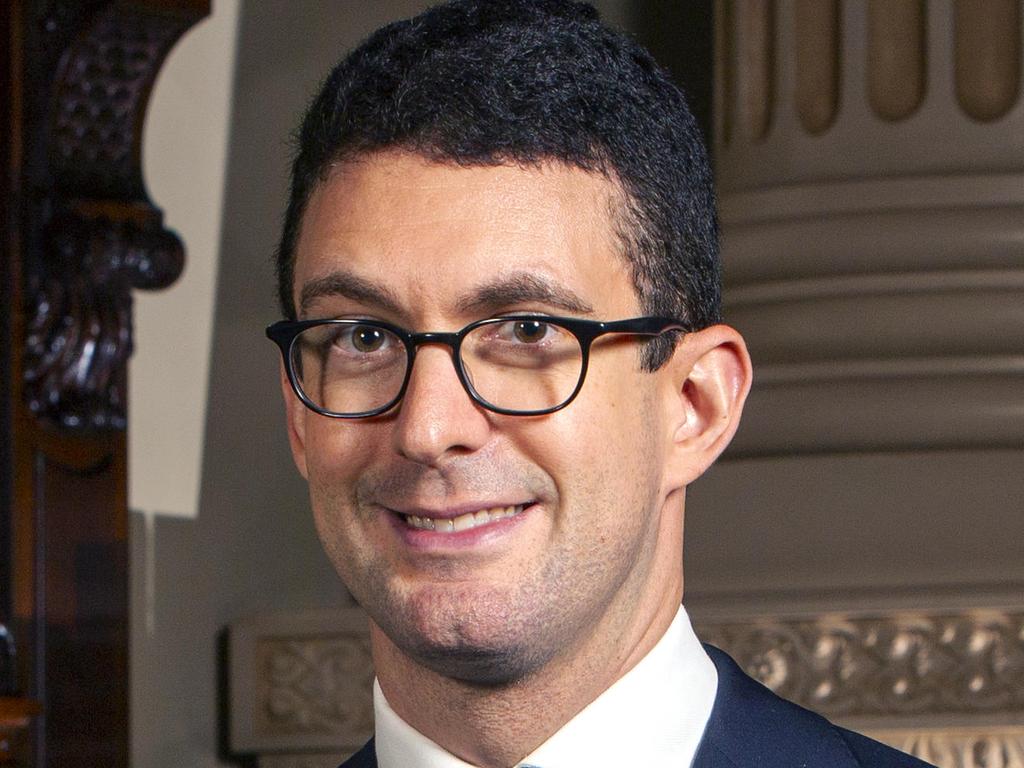
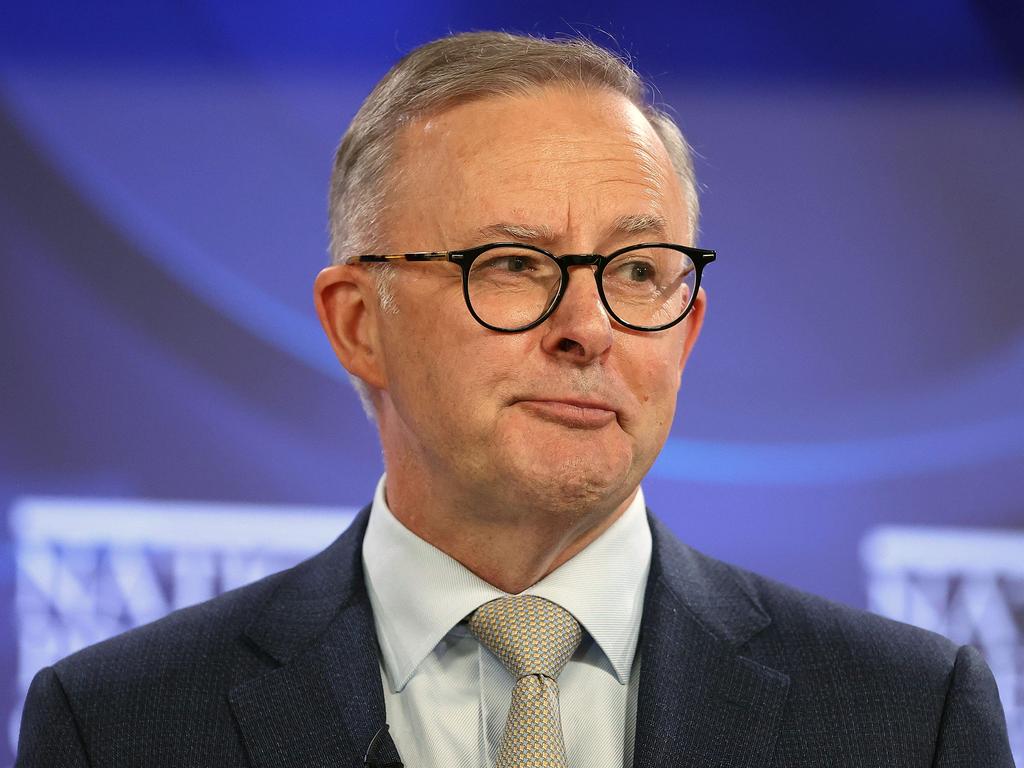



To join the conversation, please log in. Don't have an account? Register
Join the conversation, you are commenting as Logout